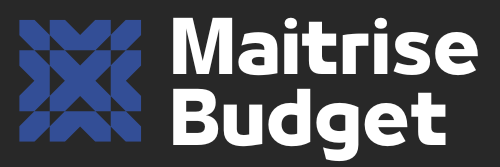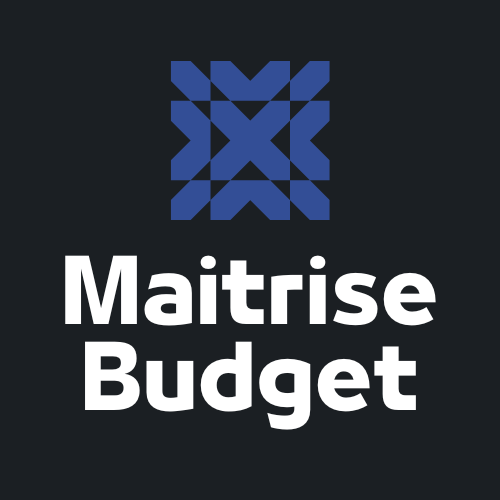OTC markets are regulated by the Financial Industry Regulatory Authority (FINRA). Spread bets and CFDs are complex instruments and come with a high risk of losing money rapidly due to leverage. 71% of retail investor accounts lose money when spread betting and/or trading CFDs with this provider. You should consider whether you understand how spread bets and CFDs work and whether you can afford to take the high risk of losing your money. Once a company is listed with an exchange, providing it continues to meet the criteria, it will usually stay with that exchange for life. However, companies can also apply to move from one exchange to another.
Six years later, by 2014, this number had increased to approximately 40%. Debt securities and other financial instruments, such as derivatives, are traded over the counter. Particular instruments such as bonds do not trade on a formal exchange – these also trade OTC by investment banks. OTC systems are used to trade unlisted stocks, examples of which include the OTCQX, OTCQB, and the OTC Pink marketplaces (previously the OTC Bulletin Board and Pink Sheets) in the US. These provide an electronic service that gives traders the latest quotes, prices and volume information.
The lack of liquidity could make it difficult to sell in the future. Although there are differences between OTC and major exchanges, investors shouldn’t experience any significant variations when trading. A financial exchange is a regulated, standardised market and could therefore be considered safer. The over-the-counter market is a network of companies that serve as a market maker for certain inexpensive and low-traded stocks, such as UK penny stocks. Stocks that trade on an exchange are called listed stocks, whereas stocks that are traded over the counter are referred to as unlisted stocks.
Therefore, a trade can be executed between two parties via an OTC market without others being aware of the price point of the transaction. This lack of transparency could cause investors to encounter adverse conditions. Comparatively, trading on an exchange is carried out in a publicly transparent manner. This can give some investors added assurance and confidence in their transactions.
- Most brokers that sell exchange-listed securities also sell OTC securities electronically on a online platform or via a telephone.
- Financial instruments traded over-the-counter include stocks, debt securities, and derivatives.
- It operates many of the better known networks, such as the OTCQX Best Market, OTCQB Venture Market and Pink Open Market.
OTC markets are generally less transparent and less regulated than conventional stock exchanges, which makes them riskier to invest in. Most brokerages allow retail investors to trade on OTC markets, although they may have additional requirements due to the risk of OTC trades. Interactive Brokers, TradeStation, and Zacks Trade are all examples of brokers that offer OTC markets. OTC markets are primarily used to trade bonds, currencies, derivatives, and structured products. They can also be used to trade equities, with examples such as the OTCQX, OTCQB, and OTC Pink marketplaces (previously the OTC Bulletin Board and Pink Sheets) in the U.S.
This can decrease the amount of oxygen that reaches the brain, a condition called hypoxia. Hypoxia can have short- and long-term mental effects and effects on the nervous system, including coma and permanent brain damage and death. DXM is an opioid without effects on pain reduction and does not act on the opioid receptors. When taken in large doses, DXM causes a depressant effect and sometimes a hallucinogenic effect, similar to PCP and ketamine. We introduce people to the world of trading currencies, both fiat and crypto, through our non-drowsy educational content and tools. We’re also a community of traders that support each other on our daily trading journey.
Each investor needs to review an investment strategy for his or her own particular situation before making any investment decision. Yarilet Perez is an experienced multimedia journalist and fact-checker with a Master of Science in Journalism. She has worked in multiple cities covering breaking news, politics, education, and more.
The flexibility of derivative contracts design can worsen the situation. The more complicated design of the securities makes it harder to determine their fair value. Thus, the risk of speculation and unexpected events can hurt the stability of the markets. There may be additional steps and fees when trading OTC securities because trades must be made through market makers who carry an inventory of securities to facilitate trading. In the United States, OTC trading in stock takes place by using market makers and inter-dealing quotation services such as OTC Bulletin Board (OTCBB) and OTCLink.
Dextromethorphan (DXM) is a cough suppressant found in many OTC cold medicines. The most common sources of abused DXM are « extra-strength » cough syrup, tablets and gel capsules. OTC medications that contain DXM often also contain antihistamines and decongestants. DXM may be swallowed in its original form or may be mixed with soda for flavor, called « robo-tripping » or « skittling. » Users sometimes inject it.
If accepted, the organisation will usually be asked to notify its previous exchange, in writing, of its intention to move. Despite the elaborate procedure of a stock being newly listed on an exchange, a new initial public offering (IPO) is not carried out. Rather, the stock simply goes from being traded on the OTC market, to being traded on the exchange. An over-the-counter derivative is any derivative security traded in the OTC marketplace. A derivative is a financial security whose value is determined by an underlying asset, such as a stock or a commodity.
The opposite of OTC trading is exchange trading, which takes place via a centralised exchange. As with any investment decision, it’s important to fully consider the pros and cons of investing in unlisted securities. That’s why it’s still important to research the stocks and companies as much as possible, thoroughly vetting the available information. That said, the OTC market is also home to many American Depository Receipts (ADRs), which let investors buy shares of foreign companies. The fact that ADRs are traded over the counter doesn’t make the companies riskier for investment purposes.
An exchange market and an OTC market are the two primary ways of formulating financial markets. Dealers behave as market makers in OTC markets by quoting the prices at which they’ll buy and sell a currency or security. Examples are domperidone, 400 mg ibuprofen up to 50 tablets and dextromethorphan. A drug that is UAD can also be sold at drugstores which are stores where no prescription can be filled. The drugs are usually on the shelves, and the store also sells items like toys, gadgets, perfumes and homeopathic products. The drugs in this category have limited risk and addiction potential.
The Charles Schwab Corporation provides a full range of brokerage, banking and financial advisory services through its operating subsidiaries. Inc. (Member SIPC), and its affiliates offer investment services and products. Its banking subsidiary, Charles Schwab Bank, SSB (member FDIC and an Equal Housing Lender), provides deposit and lending services and products.
Commonly over-the-counter stocks are not traded or listed on exchanges. Stocks that are quoted on the OTCBB must adhere to certain limited U.S Securities and Exchange Commission (SEC) reporting and regulation requirements. Some companies began by trading OTC stock and eventually upgrading to the fully regulated markets, the most famous of these companies being WalMart. The term over-the-counter otc trading agreement can be used in reference to stocks that are traded by a dealer network instead of on one centralised exchange. OTC also refers to other financial instruments, such as derivatives (which are traded using a dealer network) or to debt securities. OTC trading, also known as over-the-counter trading or off exchange trading, describes a transaction that is not conducted via a formal exchange.


